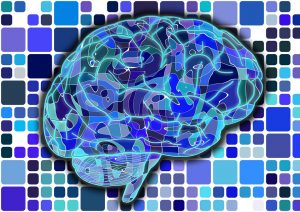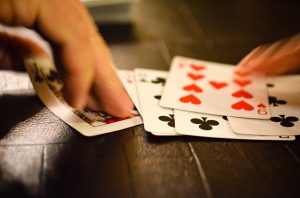 Our brain structure has certain features that are deeply ingrained. One of them is context-dependent memory. Context-dependent memory means that what is learned in a certain general context is much better remembered, memories come up much faster, and everything is much better applied in a similar context. In short, if you want to remember something, you need to immerse yourself in the environment where you learned it (e.g., go to the same place, listen to the same music, evoke the same feelings, create the same physical or mental conditions for yourself). This may be obvious and understandable, but it has one very important consequence when learning poker.
Our brain structure has certain features that are deeply ingrained. One of them is context-dependent memory. Context-dependent memory means that what is learned in a certain general context is much better remembered, memories come up much faster, and everything is much better applied in a similar context. In short, if you want to remember something, you need to immerse yourself in the environment where you learned it (e.g., go to the same place, listen to the same music, evoke the same feelings, create the same physical or mental conditions for yourself). This may be obvious and understandable, but it has one very important consequence when learning poker.
If you thought about hand history, you are absolutely right. Hand history, which is very important, is foreign to the context in which poker is actually played. Hand history is a large and complex block, far removed from reality. It has no sense of time, no visual sensations, and is completely static. A real poker hand has movement, action, experience, emotion. The way you experience hand history is completely different from what you experience when playing a real hand. Moreover, what you learned from hand history (as well as books, forums) will not be applied in actual play.
This partly explains the existence of players who analyze hands perfectly but perform poorly in the game. This phenomenon has many names: “theory crafters,” “keyboard jockeys,” etc. These people have developed their skills from the context of hand history, reading forums, or commenting on players, but they cannot apply all of that in a real poker game.
Once it reaches a certain degree, the problem becomes unmanageable. The further we move from the context, the harder it is to return. That's just how it is. How to avoid such traps?
The first and most effective way would be to try to replicate the real context. For example, do everything you can to make the hand history as similar as possible to a “live” poker hand. Try to upload all important hands to a hand replayer to get visual feedback as close as possible to a real poker hand. This may seem like a waste of time, but visual cues will help you transfer what you learn more easily into the real game.
You can also try to visualize the hand as if it were happening in reality. Try to  awaken that part of the brain that activates when playing poker and accept the stimulus that comes. Focus your attention and imagine the money, feel what it means to you, see the ticking clock and the correct action being taken. The closer you get to the real game experience, the more effective the learning process will be. Step out of your comfort zone. It is painful, may seem silly, or even uncomfortable, but it will dramatically improve your skills in the long run.
awaken that part of the brain that activates when playing poker and accept the stimulus that comes. Focus your attention and imagine the money, feel what it means to you, see the ticking clock and the correct action being taken. The closer you get to the real game experience, the more effective the learning process will be. Step out of your comfort zone. It is painful, may seem silly, or even uncomfortable, but it will dramatically improve your skills in the long run.
Another thing you can do is try to “import” the lesson from hand history through self-talk. For example, let's say you are reading a hand about a great 3-bet river bluff. Instead of just thinking to yourself, “Next time I'll do this” (a resolution that almost never materializes), write down an effective instruction for yourself. For example: “When I can represent a backdoor flush, I will 3-bet bluff the river.” Keep that note in a visible place for the next time you have a poker session. Ideally, you should read this instruction from time to time to remind yourself of it. This way, there will be more chances that when the right moment comes, you will use the 3-bet bluff on the river, and the hand you learned will come back to you, making you want to play it again.
Haseeb Qureshi





